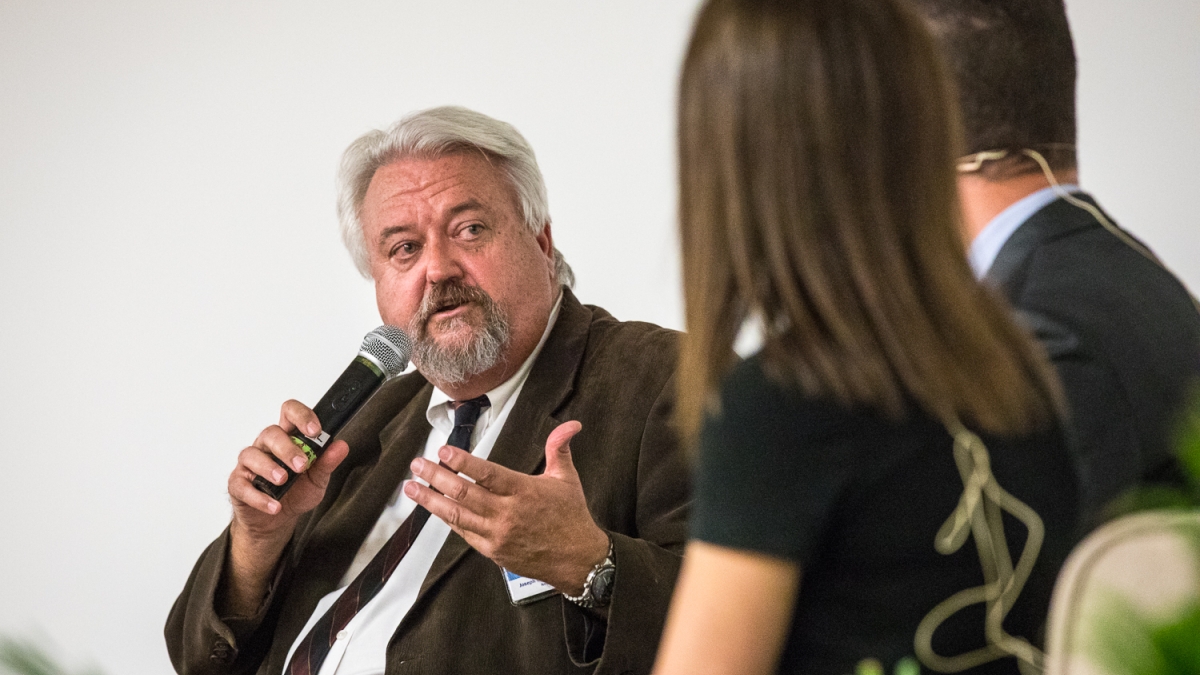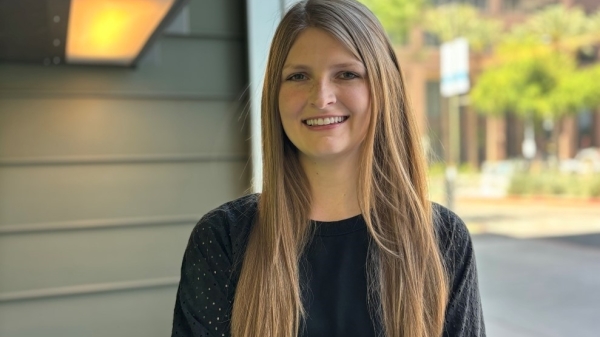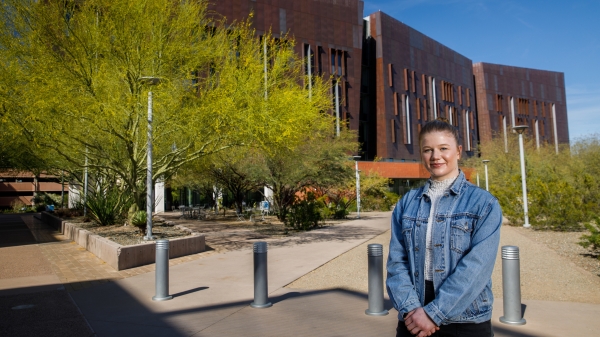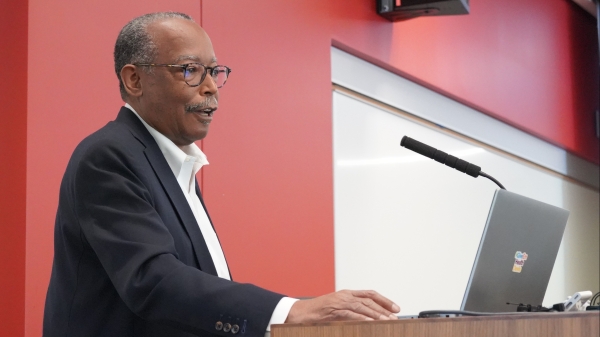ASU series on tough health conversations begins with talk on taking away the keys
Mayo Clinic professor offers guidance on what loved ones can do when health condition makes it unsafe for patient to drive

Driving is one of those privileges we all take for granted until we can’t do it anymore. We drive to get to work (some of us drive for work), we drive to meet with friends, we drive to get food — we drive to complete any number of mundane, everyday tasks that require us to get from point A to point B.
As one of Joseph Sirven’s patients told him, “Driving is life.”
Sirven, a faculty memberSirven is also a professor of neurology at Mayo Clinic School of Medicine and an adjunct faculty member of the Walter Cronkite School of Journalism and Mass Communication at ASU. of Arizona State University’s School for the Science of Health Care Delivery, told the anecdote to a crowd gathered Tuesday night at the Downtown Phoenix campus as he introduced the first of six talks to be hosted by the school over the coming academic year: “We Need to Talk: A Series of Tough Conversations About Health.”
The series brings in experts to discuss the medical, ethical and legal issues surrounding hot-button health topics such as artificial medical devices, end-of-life care decisions and medical mistakes.
The topic of Tuesday’s discussion was “Can I Drive? Taking Away the Keys: Legal & Medical Quandaries.” Joseph Drazkowski — associate dean and professor of neurology at Mayo Clinic School of Medicine — was the guest speaker, with CBS 5 TV morning anchor Preston Phillips, ASU Professor of Practice at the Hugh Downs School of Human Communication Pauline Davies and KJZZ Radio senior field correspondent Carrie Jung moderating.
A self-described “motorhead,” Drazkowski said that as a neurologist, driving is something that impacts his patients — who have disorders ranging from epilepsy to dementia — a lot. Throughout the discussion, he covered such questions as: What are the appropriate medical and legal approaches to pulling someone’s keys? When can they not drive, and what is the medical community’s ethical responsibility? And if self-driving cars become accepted, will these issues go away?
As a practicing physician in the state of Arizona, Drazkowski is not required by law to report patients whose conditions may inhibit their ability to drive to the MVD (some states, like Nevada, do). Arizona is a “self-report” state, meaning patients with such conditions are responsible for informing the MVD themselves. It can be problematic, especially since giving up the ability to drive is like giving up one’s independence, Drazkowski said.
When that’s the case, there are options. Friends and family members can send a letter of concern to the MVD, which has a medical review department and can take steps to require the driver in question to take a driving test or undergo medical evaluation. Depending on how that goes, Drazkowski said, it may be time to sit down and have an honest discussion with the driver.
“Express your concerns and be realistic,” he said. “No two situations are alike. It’s a delicate, delicate balance.”
For people with dementia, who may not even remember why they aren’t allowed to drive, physically removing the car from the home and making other arrangements may be necessary. Luckily, ride-sharing services like Uber and Lyft now have options where those in need of a ride can get one without having to use a smartphone.
It’s a start, but Drazkowski is most excited for the next step after that: fully autonomous vehicles. Once that hurdle has been cleared, he said, he believes it will truly solve the issue of driving for anyone with a condition that might prohibit them from doing so.
“And it would be easier for practitioners,” he said, “because we could say, ‘Here’s your alternative.’ ”
In response to Davies’ question of whether he plans to use an autonomous car to get around when the time comes, Drazkowski seemed enthused.
“I’ll soup up that autonomous driving vehicle,” he said.
More Health and medicine

Outstanding Graduate works to make change happen for communities with food insecurities
By Aidan Hansen Editor’s note: This story is part of a series of profiles of notable spring 2024 graduates. Arizona native and College of Health Solutions grad student Tatum Dykstra has a passion…

First exchange student for Biodesign Institute Europe bridges labs 5,000 miles apart
This spring semester, Grace Colley traveled to Arizona State University and became the first student to participate in the Biodesign Institute Europe student exchange program. In doing so, she helped…

College of Health Solutions hosts visit from leading expert in genomic research
Some fortunate Arizona State University faculty, staff and students were able to gain valuable insights and perspective during a visit by one of the country’s leading figures in health and scientific…